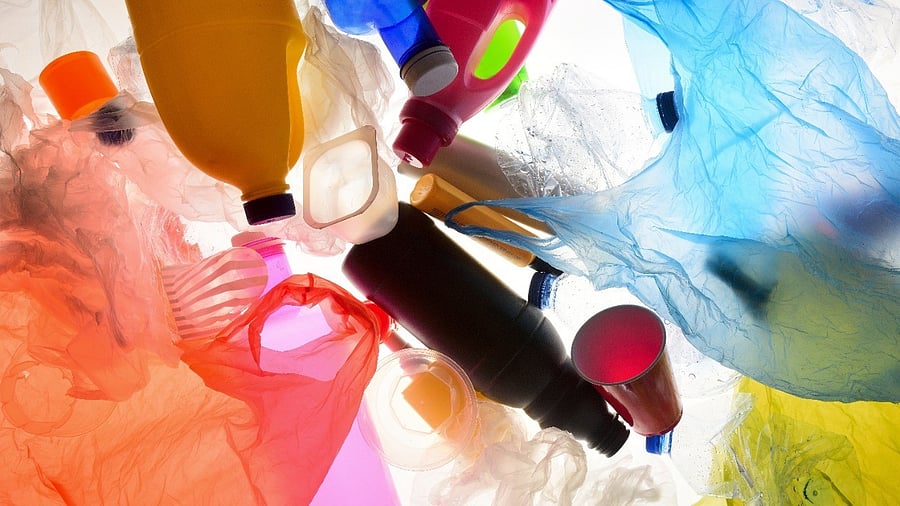
Representative image for plastic pollution.
Credit: iStock Photo
The failure of the Geneva negotiations to firm up a global plastics treaty was expected. The differences between a "high-ambition" group of nearly 70 nations, which sought global caps on virgin plastic and controls on hazardous chemicals, and a "like-minded" group of over 100 countries, which only wanted recycling, waste management, and voluntary commitments, were clear before the meeting.
These differences have persisted for decades with no sign of resolution. The groups carried their uncompromising positions to the 184-nation UNEP conference, causing its collapse. It was the sixth attempt in three years to frame a binding agreement. The meeting ended without a consensus on the draft document, which tried to find a common ground. After negotiations for 10 days, it was agreed to resume talks at a future date yet to be decided.
The "high-ambition" bloc consists of the EU, Australia, some African countries, and Pacific islands. The second group consists of Russia and other oil-producing countries, and India, which has the dubious distinction of being the world’s biggest plastic polluter, accounting for around 20 per cent of the global plastic waste. The damage caused by plastics to the environment and the health of all living beings is well known.
The world produces more than 430 million MT of plastic annually. Most of it is in the form of short-lived products that are dumped after use. In the absence of efficient waste management systems, the plastic waste ends up in landfills and oceans. It impacts ecosystems, biodiversity, and climate. Microplastics also enter the food system and cause irreversible damage to health.
Countries in the "like-minded" bloc maintain that plastics are a part of the economy and development plans, and support livelihoods on a large scale. They want the usage to be managed in diverse ways.
The contesting group points out that management efforts have not succeeded so far, and the problem can be solved only by ending or cutting down the production of plastics. This is a valid position, considering that the production and use of plastics have only increased over the years. India’s ban on single-use plastics has been ineffective.
Unless the two sides are ready for a compromise, there cannot be any agreement. The plastic talks have not achieved even the limited headway that climate negotiations have managed. All threats to global health and the environment are interlinked, and failure in one area impacts others. The crisis is real and growing – countries should look beyond narrow interests and see the big picture.
